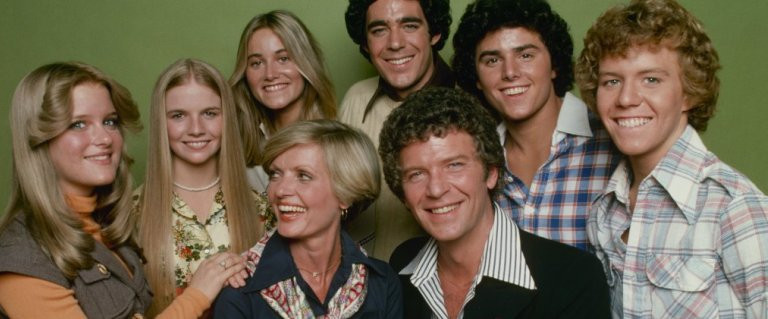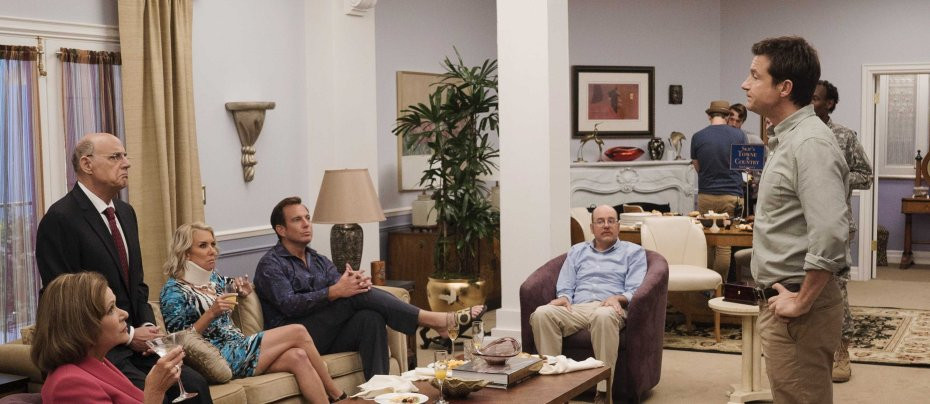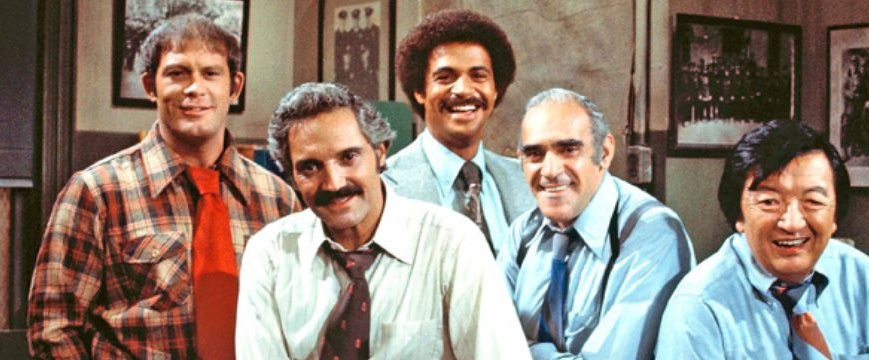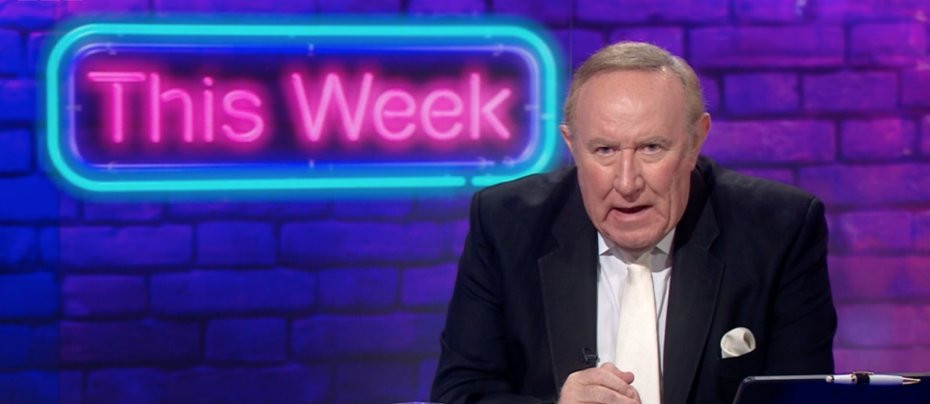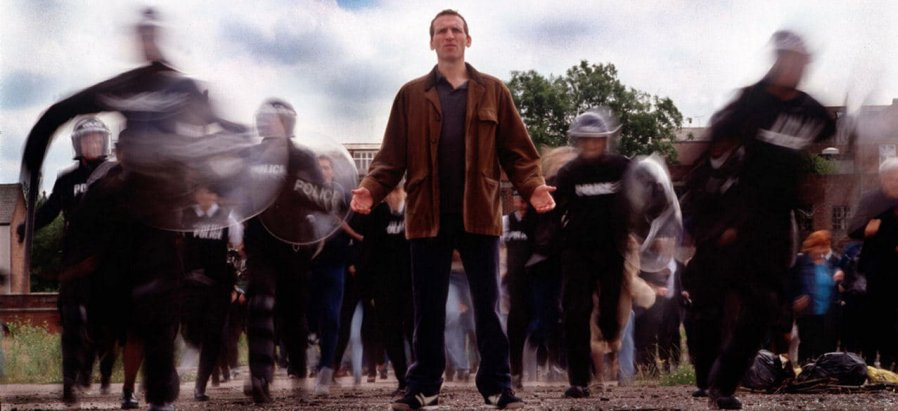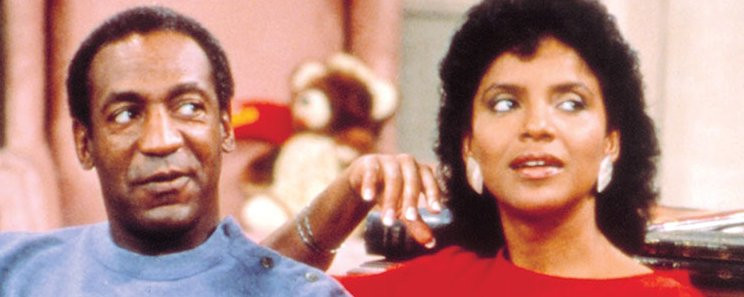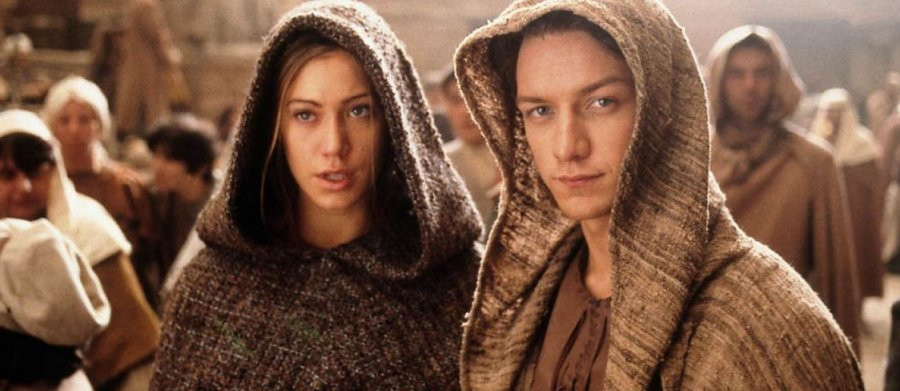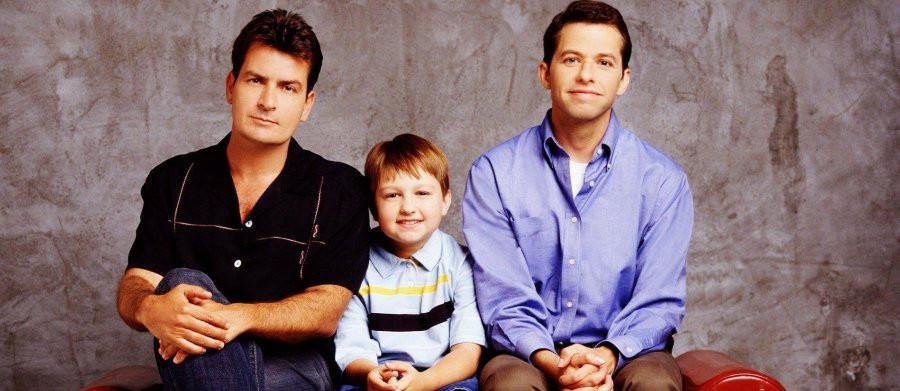
Two and a Half Men
2003 - United StatesThis sitcom about two adult brothers –one a swinging single, the other a neurotic divorced father - defied all predictions to become an unqualified hit. But the controversial departure of its star Charlie Sheen and the hiring of Ashton Kutcher (“That 70's Show”) as his replacement after eight seasons gave "Two and a Half Men" a second chance to make a first impression with viewers.
When “Men” began in the fall of 2003, Sheen played womanizer and songwriter Charlie Harper, whose talent with words and music was equalled by his shameless bedding of every attractive female that crossed the doorstep of his beautiful Malibu, California shoreline home. Shameless, that is, to his nerdy and conservative sibling Alan (Jon Cryer), who had just ended his marriage to wife Judith (Marin Hinkle); the pair shared custody of their teenage son Jake (Angus T. Jones, the “half” man in the show’s title). Alan had no choice but to move in with his more successful brother. But having Alan and Jake under his roof was not Charlie’s idea of paradise; he felt morose - Alan and young Jake cramped his playboy style, as did frequent visits by the brothers’ oversexed yet distant mother Evelyn (Holland Taylor) and the sarcastic barbs from Charlie’s long-suffering housekeeper Bertha (Conchata Ferrell).
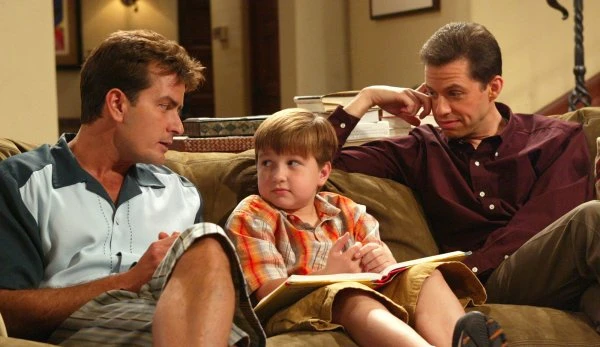
All this came from the mind of veteran comedy producer Chuck Lorre, who already had experience with both couples and diva stars on such series as "Grace Under Fire," "Cybil" and "Roseanne"–but a much happier experience with the Jenna Elfman comedy "Dharma & Greg," which ran on ABC for five seasons. But let Lorre’s words explain the creation of "Two And A Half Men", thanks to “vanity” cards that are briefly seen at the end of each episode—a tradition he began with "Dharma & Greg":
"When ‘Dharma’ was cancelled my heart was broken. Over the next few years my efforts to mend it by creating a new show led to an even deeper emotional nadir when I noticed that I had somehow become the author of a seemingly endless succession of failed pilots and pilot scripts. But I was indomitable. I kept writing... and failing... and ambling. And then (in 2002), my good friend and favourite cross-to-bear, Lee Aronsohn, told me he needed to write something fairly quickly in order to keep his Writer's Guild health insurance. Everyone -- friends, agents, execs – told me not to get involved. They assured me that I was too big, too successful, for such a partnership. You see where this is going. Lee and I wrote ‘Two and a Half Men.’"
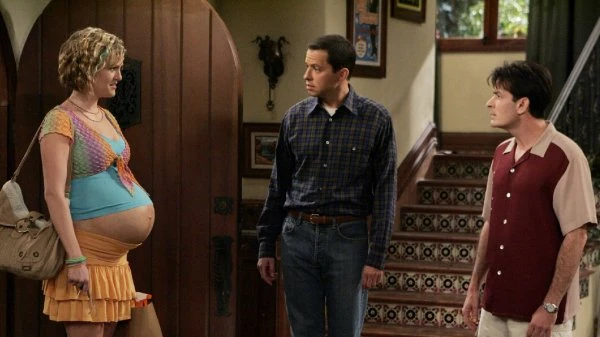
Both men based the show on their own experiences with divorce and dating. And Lorre made this promise to his viewers:
“We will do no ‘very special’ episodes. Nobody's having a baby. No one's getting married. Someone is getting divorced. Our characters are flawed, yet smart. The kid is, and will remain, a real kid. There will be no bachelor auctions. No one's getting stranded in a cabin or stuck in an elevator. There will be no dream sequences, talent shows, or fantasies.”
The formula worked. “Two and A Half Men” quickly became a top-20 hit and remained a staple on CBS’ Monday night comedy block. One reason was the effective chemistry between its two lead stars. Maybe that’s because both actors had seen their share of success and setbacks in show business.

Charlie Sheen, the son of actor (and former "West Wing" star Martin Sheen), had a pretty fair movie career before the series began, but his personal life became fodder for tabloids. Sheen’s public image began to change in the fall of 2000, when he replaced the beloved Michael J. Fox on the sitcom "Spin City." Paired with the fetching Heather Locklear, Sheen won over critics and helped the show survive for two additional seasons. He also cleaned up his personal act, settling down and marrying actress Denise Richards in 2002; the two divorced several years later amid a much-publicized fight over custody of their children. Sheen’s performance on "Spin City" led Lorre to cast him as Charlie Harper.
Fans of John Hughes’ teen films know Jon Cryer’s famous character of “Duckie” in the 1986 Molly Ringwald film Pretty in Pink. But Cryer’s luck wasn’t so good with situation comedies—whether it was the well done but short-lived "The Famous Teddy Z"; the buddy comedy "Partners"; or the mediocre "The Trouble With Normal." To add insult to injury, Cryer was up for a role in a sitcom tentatively titled "Six of One," but his audition tape didn’t reach the network in time. As a result, he lost the part of Chandler Bing to Matthew Perry on the show, which was renamed "Friends." “Men” certainly changed Cryer’s luck for the better, in 2009, he won an Emmy Award for outstanding supporting actor in a comedy series, while both Sheen and the series itself were passed over.)

One critic has called “Men” a "sometimes creepy, misogynistic comedy.” Indeed, the show’s emphasis on sexual situations did not go unnoticed by conservative distractors. During the fourth season, Chuck Lorre used one of his “vanity cards” to explain a rather raunchy joke in one episode:
“The scene, as I'm sure you remember, involved Charlie finding Alan, post-coital, tied to his bed, and wearing nothing but a bustier and red nylons. The offending line in the scene was what we in the comedy biz refer to as a "callback" since it references a line that was said earlier in the episode (in this case the line was when Alan's date implies that she hopes to spend the night with him by coyly saying "I brought a toothbrush with me.") The excised joke was, without question, in terrible taste and we didn't even try to defend it. But we did think it was funny. In any case, here it is: In the original, uncensored final scene, Charlie nonchalantly exits the bedroom without untying his hapless brother. Alan reacts with astonishment and calls out, "Charlie?... Charlie?! This isn't funny! Come back!... At least take out the toothbrush!" When we shot this version our studio audience laughed loud and long. Our CBS censor's head exploded, injuring several writers standing nearby.”
There was an unusual crossover between “Men” and another CBS series, “CSI: Crime Scene Investigation.” Lorre and his team wrote a “CSI” episode while the “CSI” folks penned a script for “Men.” The “Men” episode of 5 May 2008 (“Fish in a Drawer”) featured “CSI” regular George Eads in a funny story about the death of Evelyn’s new husband (played by Robert Wagner). Even better was the “CSI” instalment by Lorre’s team that aired three days later: “Two and a Half Deaths” centred on a diva and unloved sitcom star (Katey Sagal) who was murdered during a filming of her show in Las Vegas. (Sheen, Cryer and Jones made cameo appearances). It probably gave Lorre a chance to vent his real-life experiences with Roseanne, Cybil Shephard and other troublesome ladies. Little did he know bad behaviour was not limited to the female gender.
By early 2010, Charlie Sheen’s personal life was making headlines. In February of that year, “Men” production came to a halt after Sheen entered drug rehab. When filming resumed in March, Sheen and CBS battled over money: Sheen felt CBS’ new contract offer of $1 million for each episode was too low. But a deal was reached, keeping Sheen on the air for two more seasons at a salary of nearly $1.8 million for each episode. All seemed well until January 2011, when the star went back to rehab–the third time in a year. Again, the show halted production. But one month later, Sheen attacked Lorre in two separate interviews. CBS announced “Men” would not film any more episodes for the remainder of the season. Sheen continued his strange tirade against Lorre–and CBS executives. In March, CBS and Warner Brothers (the show’s studio) announced Sheen had been fired for “moral turpitude.” Co-star Jon Cryer refused to comment on Sheen’s troubles; Sheen quickly called Cryer a “turncoat,” “trader” and “a troll.” Sheen also filed suit against Lorre and Warner Brothers for $100 million (a settlement was reached with terms not disclosed).
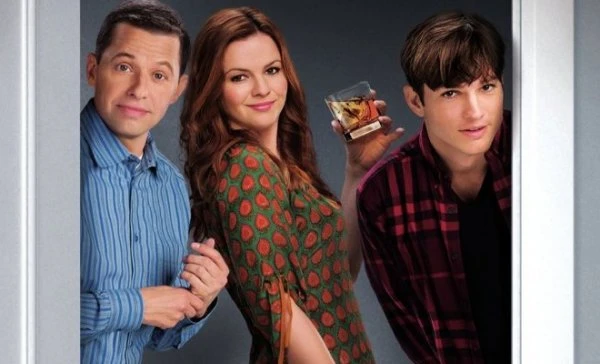
The lawsuit apparently ended all efforts to make nice with Sheen. In May, CBS announced “Two and a Half Men” would continue production, with Ashton Kutcher joining the cast as a new character named Walden Schmidt, described as an “Internet billionaire with a broken heart.” (Sheen’s character was killed off in the ninth season premiere, with his former gal pals attending his funeral.)
In April 2013, CBS renewed the series for an eleventh season after closing one-year deals with Kutcher and Cryer. Jones, who was attending college, was relegated to recurring status for season 10 but did not make an appearance until the series finale. He was replaced by Jenny (Amber Tamblyn), Charlie's previously unknown daughter. In March 2014, CBS renewed the series for a twelfth season, which was later announced to be the series' last. The season began airing in October 2014 and concluded in February 2015 with the 40-minute series finale "Of Course He's Dead". The success of the series led to it being the fourth-highest revenue-generating programme for 2012, earning $3.24 million an episode.

But leave it to co-creator Chuck Lorre to have the final word:
“I exercise regularly. I eat moderate amounts of healthy food. I make sure to get plenty of rest. I see my doctor once a year and my dentist twice a year. I floss every night. I've had chest x–rays, cardio stress tests, EKG's and colonoscopies. I see a psychologist and have a variety of hobbies to reduce stress. I don't drink. I don't smoke. I don't do drugs. I don't have crazy, reckless sex with strangers. If Charlie Sheen outlives me, I'm gonna be really p----d.”
Seen this show? How do you rate it?
Seen this show? How do you rate it?
Published on November 19th, 2020. Written by Michael Spadoni for Television Heaven.


